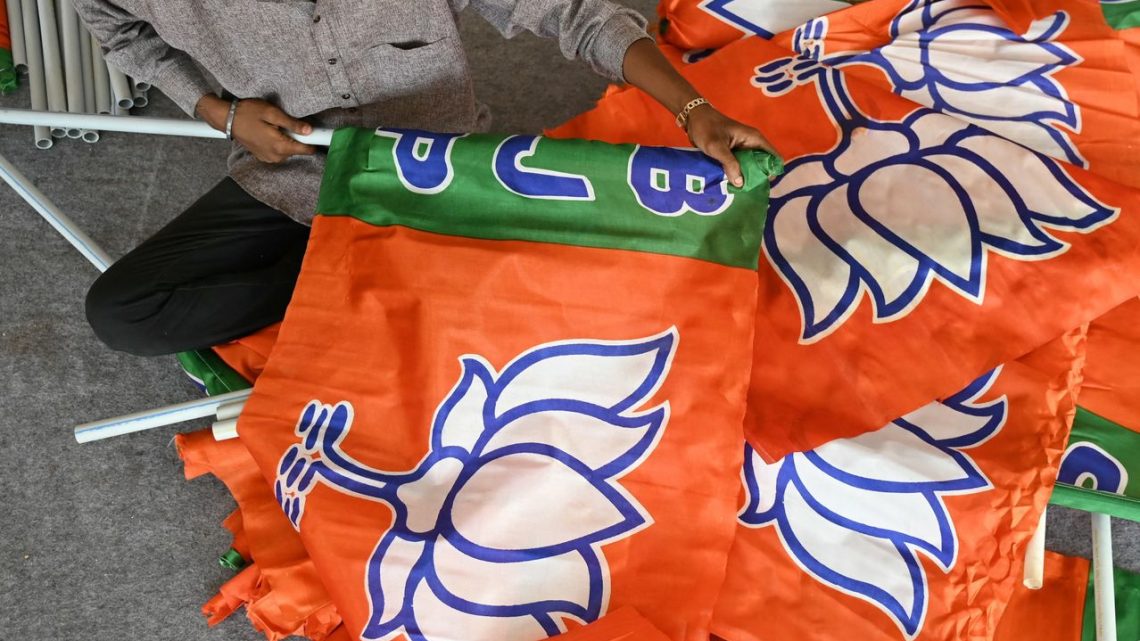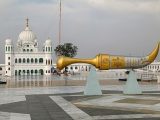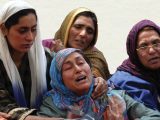
India’s Ruling Party BJP Sharpens Anti-Muslim Rhetoric Ahead of Elections: The Wall Street
May 14, 2024As India approaches the fourth phase of its seven-week-long general election, the ruling Bharatiya Janata Party (BJP) has intensified its campaign rhetoric, which critics argue pits Hindus against Muslims. The BJP has released videos portraying Muslims as invaders targeting Hindu temples and seizing jewelry from Hindu women. Prime Minister Narendra Modi, campaigning for an unprecedented third term, has labeled Muslims as “infiltrators” in India.
A particularly provocative campaign video features an opposition politician placing an egg labeled “Muslims” in a nest with three other eggs named after disadvantaged Indian communities. The video shows a bird, wearing a skull cap typically associated with Muslim men, hatching from the egg and pushing the other birds out of the nest. This imagery has sparked significant controversy, highlighting the BJP’s strategy of leveraging religious divisions to galvanize Hindu support.
On May 13, 2024, India will vote in the fourth phase of the general election, with polling taking place for 96 seats across 10 states and territories. Approximately 177 million people are eligible to vote in this phase, which includes key southern and eastern states like Telangana, Andhra Pradesh, and Odisha. These regions pose a challenge for the BJP, which is not as dominant there compared to other parts of the country.
Political analysts note that a lower voter turnout in the initial phases prompted Prime Minister Modi to shift his campaign focus. Initially centered on his economic record, Modi’s rhetoric has increasingly targeted the Congress party, accusing it of planning to extend welfare benefits to Muslims at the expense of disadvantaged Hindu and tribal groups. Congress has refuted these claims, arguing that Modi is deflecting from issues like unemployment and inflation, which remain top concerns for voters.
India’s demographic landscape is complex, with Hindus constituting about 80% of the population and Muslims making up around 14%, the third-largest Muslim population globally at about 200 million. Despite religious tensions, surveys indicate that voters are primarily concerned with economic issues such as joblessness and rising prices.
The Congress party, led by Rahul Gandhi, has focused its campaign on better representation and welfare programs for India’s poor and marginalized groups. Congress argues that economic inequality has worsened during Modi’s decade in power, a claim the BJP disputes. Sunny Hazari, a Congress candidate, warned that if Modi is re-elected, the BJP and its ideological parent, the Rashtriya Swayamsevak Sangh (RSS), would alter the Constitution, undermine democracy, and end affirmative action policies. Hazari accused Modi of prioritizing divisive rhetoric over addressing critical issues like unemployment and inflation, aiming to provoke communal unrest.
As India’s election progresses, the sharpening of campaign rhetoric by the BJP highlights a deeply polarized political landscape. With the BJP focusing on Hindu-Muslim divisions and the Congress emphasizing economic disparities and social justice, the election has become a battleground of ideologies and visions for India’s future.

